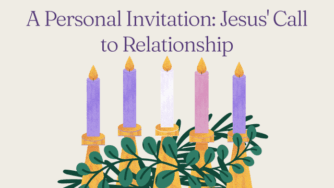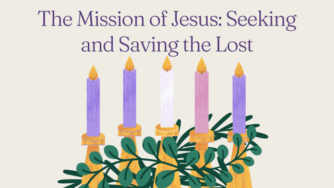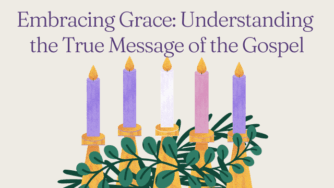Believers are called to Be The Church
In a powerful sermon that resonates deeply with the essence of the church’s identity, Drew spoke about a profound truth: Jesus Christ refers to the church as His bride. This metaphor isn’t just poetic imagery; it encapsulates the deep, relational bond between Christ and His church, and it carries significant implications for how we live out our faith within the community of believers. This message holds special significance for us today, as we navigate the challenges of maintaining unity and forgiveness within our church communities.
The Church as the Bride of Christ
The concept of the church being the bride of Christ is deeply rooted in Scripture. This imagery highlights the intimate, covenantal relationship between Jesus and His followers. In Ephesians 5:25-27 (NIV), Paul writes:
“Husbands, love your wives, just as Christ loved the church and gave himself up for her to make her holy, cleansing her by the washing with water through the word, and to present her to himself as a radiant church, without stain or wrinkle or any other blemish, but holy and blameless.”
Here, Paul draws a direct parallel between the love Christ has for the church and the love a husband should have for his wife. Just as a husband is called to cherish and care for his wife, Christ’s love for the church is sacrificial and purifying. The church, as Christ’s bride, is to be treated with the utmost respect, love, and commitment.
Another significant reference is found in Revelation 19:7-9 (NIV):
“Let us rejoice and be glad and give him glory! For the wedding of the Lamb has come, and his bride has made herself ready. Fine linen, bright and clean, was given her to wear.” (Fine linen stands for the righteous acts of God’s holy people.) Then the angel said to me, ‘Write this: Blessed are those who are invited to the wedding supper of the Lamb!’ And he added, ‘These are the true words of God.’”
In this passage, the church is depicted as the bride preparing for the ultimate union with Christ. This imagery not only underscores the purity and preparation required but also the joy and celebration that will accompany the consummation of this divine relationship. The church, adorned in fine linen, represents the righteous acts of believers, signifying that our actions and devotion are integral to our readiness for Christ.
The Call to Love and Serve the Church
Given that the church is described as Christ’s bride, it follows that our love for Jesus should naturally extend to His church. Drew’s sermon poignantly illustrates this point: if you claim to love Jesus but disregard His bride, your love is incomplete. This is a call to action for all believers. Our commitment to Christ involves an active, tangible love for the church community.
In 1 John 4:20 (NIV), we read:
“Whoever claims to love God yet hates a brother or sister is a liar. For whoever does not love their brother and sister, whom they have seen, cannot love God, whom they have not seen.”
This verse underscores the connection between our love for God and our love for fellow believers. The church, as the body of Christ, represents His presence on earth. Therefore, our relationship with the church reflects our relationship with Christ. To love Christ means to love His people, to engage in their lives, to serve alongside them, and to build a community that mirrors the kingdom of God.
In Romans 12:4-5 (NIV), Paul further emphasizes the interconnectedness of believers:
“For just as each of us has one body with many members, and these members do not all have the same function, so in Christ we, though many, form one body, and each member belongs to all the others.”
This passage reminds us that the church is not a collection of isolated individuals but a unified body where each member plays a vital role. Our love and service to one another are expressions of our love for Christ. When we invest in the church, we are investing in the very bride of Christ, contributing to its growth, health, and unity.
Forgiveness and Unity: A Reflection of God’s Grace
One of the challenges that believers face is dealing with offenses and conflicts within the church. These situations can lead to separation, bitterness, and a fractured community. However, as Drew emphasized, real forgiveness is an overflow of the forgiveness God has given us.
In Colossians 3:13 (NIV), Paul instructs:
“Bear with each other and forgive one another if any of you has a grievance against someone. Forgive as the Lord forgave you.”
Forgiveness is not merely a recommendation but a command rooted in the grace we’ve received. The church, as the bride of Christ, is called to embody this grace through forgiveness and reconciliation. This mirrors the heart of Jesus’ final prayer for His followers. The ability to forgive is a powerful testimony to the transformative power of God’s love in our lives.
Matthew 18:21-22 (NIV) records a significant conversation between Peter and Jesus about forgiveness:
“Then Peter came to Jesus and asked, ‘Lord, how many times shall I forgive my brother or sister who sins against me? Up to seven times?’ Jesus answered, ‘I tell you, not seven times, but seventy-seven times.’”
Jesus’ response indicates that forgiveness should be limitless, reflecting the boundless forgiveness we have received from God. This principle is crucial for maintaining unity within the church. When we forgive one another, we reflect God’s character and create an environment where healing and reconciliation can flourish.
Jesus’ Prayer for Unity
In His final prayer before His ascension, Jesus prayed for the unity of His followers, knowing the challenges and conflicts that would arise. In John 17:20-23 (NIV), Jesus prays:
“My prayer is not for them alone. I pray also for those who will believe in me through their message, that all of them may be one, Father, just as you are in me and I am in you. May they also be in us so that the world may believe that you have sent me. I have given them the glory that you gave me, that they may be one as we are one— I in them and you in me— so that they may be brought to complete unity. Then the world will know that you sent me and have loved them even as you have loved me.”
Jesus’ prayer highlights the profound connection between the unity of believers and the world’s recognition of Christ’s divine mission. When the church embodies unity, forgiveness, and love, it becomes a powerful witness to the world. It demonstrates the transformative impact of Christ’s love and grace, drawing others to Him.
This prayer also emphasizes the divine origin of unity. Our oneness as believers is grounded in the relationship between the Father, Son, and Holy Spirit. It’s a unity that transcends human differences and reflects the perfect harmony within the Trinity. This divine unity is not merely a goal but a gift that we are called to preserve and display to the world.
The Impact of Internal Church Unity on Evangelism
The unity and forgiveness within the church are not merely internal matters but have far-reaching implications for the world’s perception of Christ. Jesus’ prayer links the church’s unity with the world’s belief in Him. This means that how we live out our relationships within the church can directly influence the effectiveness of our witness to the lost.
When a church is marked by genuine love, forgiveness, and unity, it becomes a beacon of hope and a reflection of God’s kingdom. This is not just about internal harmony but about demonstrating the power of the gospel to a watching world. As the church lives out its calling as the bride of Christ, it bears witness to the reality of God’s love and grace, compelling others to seek Him.
In John 13:34-35 (NIV), Jesus gives His disciples a new commandment:
“A new command I give you: Love one another. As I have loved you, so you must love one another. By this everyone will know that you are my disciples, if you love one another.”
This command underscores the idea that our love for one another is a distinguishing mark of our discipleship. It’s through our love and unity that the world recognizes us as followers of Christ. When people see a community that genuinely cares for each other, forgives readily, and works together harmoniously, they see a tangible representation of the gospel.
Practical Steps to Foster Unity and Forgiveness
- Cultivate a Culture of Open Communication: Open and honest communication is vital for maintaining unity. Encourage members to express their concerns and grievances in a respectful manner. This can prevent misunderstandings and resolve conflicts before they escalate. James 1:19 (NIV) advises, “My dear brothers and sisters, take note of this: Everyone should be quick to listen, slow to speak and slow to become angry.”
- Embrace a Spirit of Humility: Humility is essential for unity and forgiveness. Recognize that we all fall short and need God’s grace. Ephesians 4:2-3 (NIV) says, “Be completely humble and gentle; be patient, bearing with one another in love. Make every effort to keep the unity of the Spirit through the bond of peace.”
- Promote Shared Worship and Fellowship: Regularly coming together for worship and fellowship strengthens the bonds within the church. Acts 2:42 (NIV) describes the early church, “They devoted themselves to the apostles’ teaching and to fellowship, to the breaking of bread and to prayer.” Shared experiences create a sense of belonging and unity.
- Encourage Accountability and Support: Accountability helps us stay true to our commitments and grow in our faith. Establish small groups or accountability partners where members can support and pray for one another. Galatians 6:2 (NIV) instructs, “Carry each other’s burdens, and in this way you will fulfill the law of Christ.”
- Practice Generosity and Service: Serving others fosters a sense of community and purpose. Look for opportunities to serve within and outside the church. 1 Peter 4:10 (NIV) encourages, “Each of you should use whatever gift you have received to serve others, as faithful stewards of God’s grace in its various forms.”
- Implement Regular Teaching on Forgiveness: Regular teaching on forgiveness reminds us of its importance and helps us understand how to practice it. Use sermons, Bible studies, and workshops to explore what Scripture says about forgiveness and reconciliation.
- Celebrate Milestones and Achievements: Celebrating milestones and achievements within the church fosters a positive atmosphere and encourages members. Acknowledge birthdays, anniversaries, and other significant events, and celebrate the accomplishments and growth of the church as a whole.
- Foster a Spirit of Prayer: Prayer is foundational for maintaining unity and forgiveness. Encourage regular prayer meetings and personal prayer lives. Colossians 4:2 (NIV) says, “Devote yourselves to prayer, being watchful and thankful.” Prayer helps us align our hearts with God’s will and seek His guidance in maintaining unity.
Overcoming Challenges to Unity and Forgiveness
Maintaining unity and forgiveness within the church is not without its challenges. Conflicts, misunderstandings, and hurt feelings can arise. However, recognizing these challenges and addressing them proactively is essential.
- Addressing Conflicts Directly: When conflicts arise, address them directly and promptly. Matthew 18:15-17 (NIV) provides a framework for dealing with conflicts: “If your brother or sister sins, go and point out their fault, just between the two of you. If they listen to you, you have won them over. But if they will not listen, take one or two others along, so that ‘every matter may be established by the testimony of two or three witnesses.’ If they still refuse to listen, tell it to the church; and if they refuse to listen even to the church, treat them as you would a pagan or a tax collector.”
- Fostering Empathy and Understanding: Empathy helps us see things from others’ perspectives and fosters understanding. Romans 12:15 (NIV) encourages, “Rejoice with those who rejoice; mourn with those who mourn.” By empathizing with others, we build deeper connections and mitigate conflicts.
- Providing Mediation and Counseling: Sometimes, conflicts require mediation or counseling to resolve. Providing access to trained mediators or counselors can help parties navigate their issues and find resolution.
- Promoting a Growth Mindset: Encourage a growth mindset where members see conflicts as opportunities for growth and learning. James 1:2-4 (NIV) reminds us, “Consider it pure joy, my brothers and sisters, whenever you face trials of many kinds, because you know that the testing of your faith produces perseverance. Let perseverance finish its work so that you may be mature and complete, not lacking anything.”
- Modeling Forgiveness and Unity: Leaders play a crucial role in modeling forgiveness and unity. When leaders demonstrate these qualities, it sets a powerful example for the rest of the congregation. Philippians 2:3-4 (NIV) advises, “Do nothing out of selfish ambition or vain conceit. Rather, in humility value others above yourselves, not looking to your own interests but each of you to the interests of the others.”
- Creating a Safe and Inclusive Environment: Ensure that the church is a safe and inclusive environment where everyone feels valued and respected. Galatians 3:28 (NIV) states, “There is neither Jew nor Gentile, neither slave nor free, nor is there male and female, for you are all one in Christ Jesus.” Inclusivity and respect are foundational for unity.
The Role of Leadership in Fostering Unity
Leadership plays a pivotal role in fostering unity and forgiveness within the church. Leaders set the tone for the congregation and are responsible for creating an environment where these values are prioritized.
- Vision Casting: Leaders must cast a clear vision for unity and forgiveness, continually reminding the congregation of their importance. Proverbs 29:18 (NIV) says, “Where there is no vision, the people perish.” A clear vision helps guide the church towards these goals.
- Leading by Example: Leaders should exemplify unity and forgiveness in their own lives. 1 Timothy 4:12 (NIV) instructs, “Don’t let anyone look down on you because you are young, but set an example for the believers in speech, in conduct, in love, in faith and in purity.”
- Providing Training and Resources: Equip the congregation with the tools and knowledge they need to practice unity and forgiveness. This can include workshops, seminars, and Bible studies focused on these topics.
- Encouraging Accountability: Leaders should encourage accountability within the church, ensuring that members are held to the standards of unity and forgiveness. Hebrews 10:24-25 (NIV) states, “And let us consider how we may spur one another on toward love and good deeds, not giving up meeting together, as some are in the habit of doing, but encouraging one another—and all the more as you see the Day approaching.”
The Fruit of Unity and Forgiveness
When a church embodies unity and forgiveness, it bears fruit that extends beyond its walls. The impact of these values is seen in the lives of the congregation, the local community, and the broader world.
- Spiritual Growth: Unity and forgiveness create an environment where spiritual growth can flourish. Members are more likely to engage in discipleship and grow in their faith when they feel supported and valued.
- Enhanced Witness: A unified and forgiving church serves as a powerful witness to the world. People are drawn to a community that reflects the love and grace of Christ, leading to increased opportunities for evangelism.
- Stronger Community Relationships: When the church is unified, its impact on the local community is magnified. The church can better serve and support the community, building stronger relationships and fostering goodwill.
- Increased Resilience: A unified church is more resilient in the face of challenges. Members support one another through difficult times, and the church can navigate crises more effectively.
- Joy and Fulfillment: Unity and forgiveness lead to a sense of joy and fulfillment within the church. Members experience the joy of being part of a loving, supportive community that reflects the heart of Christ.
Conclusion
The church’s identity as the bride of Christ carries profound implications for how we relate to one another and to the world. Our love for Jesus is intricately connected to our love for His church. This love is expressed through active service, forgiveness, and a commitment to unity. As Drew’s sermon reminds us, real forgiveness is a reflection of the forgiveness we’ve received from God, and our unity as a church is a powerful testimony to the world of Christ’s love.
In light of Jesus’ final prayer, let us strive to live out this calling with intentionality, knowing that our unity and forgiveness have the potential to impact the world profoundly. By embracing our role as Christ’s bride and reflecting His love, we become a living testament to His grace and a compelling witness to those seeking truth. Let us commit to fostering a culture of unity and forgiveness within our church, knowing that it is through these values that we truly honor Christ and draw others to Him.
As we move forward, may we continually seek God’s guidance in maintaining unity and practicing forgiveness. Let us be diligent in addressing conflicts, fostering empathy, and promoting a spirit of humility and service. Through our efforts, may the world see the love of Christ reflected in our community, and may we draw many to Him through our witness. Together, as the bride of Christ, let us shine brightly in a world in need of His love and grace. received from God, and our unity as a church is a powerful testimony to the world of Christ’s love.
In light of Jesus’ final prayer, let us strive to live out this calling with intentionality, knowing that our unity and forgiveness have the potential to impact the world profoundly. By embracing our role as Christ’s bride and reflecting His love, we become a living testament to His grace and a compelling witness to those seeking truth.





